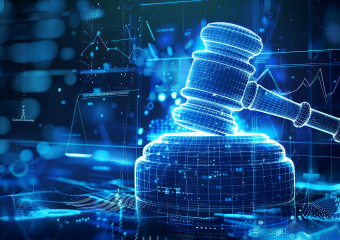Protecting Animals, Empowering Attorneys: AI Tools for Animal Law Specialists
Protecting Animals, Empowering Attorneys: AI Tools for Animal Law Specialists
AI Tools for Animal Law: A Game Changer
AI tools for animal law are not just transforming the way attorneys practice law, but they are also revolutionizing the protection and welfare of animals. In a field where the stakes can be as high as the emotions involved, artificial intelligence offers a new horizon of possibilities, enabling lawyers to work more efficiently and advocate more effectively for those who cannot speak for themselves.
The Rise of AI in Legal Practices
Artificial intelligence is increasingly becoming a mainstay in various legal fields, offering solutions that range from document automation to predictive analytics. In the realm of animal law, AI tools help in managing complex data sets concerning animal welfare cases, tracking laws across different jurisdictions, and analyzing historical legal data to predict outcomes. This technology empowers attorneys by providing them with data-driven insights that are difficult to compile manually.
Enhancing Research and Case Preparation
One of the most time-consuming aspects of legal work involves conducting thorough research and preparing for cases. AI tools are adept at sifting through vast amounts of legal documents to extract necessary information. This capability is invaluable for animal law attorneys, who deal with a plethora of regulations spanning environmental, commercial, and ethical domains. By leveraging AI-powered legal research tools, attorneys can identify relevant case law, statutes, and regulatory changes more swiftly and accurately.
Furthermore, AI can assist lawyers in understanding and navigating complex intersections between animal rights and other legal areas such as agricultural laws, domestic laws, and environmental conservation laws. This comprehensive approach ensures that attorneys have a holistic view of their cases, making their advocacy efforts more potent.
Predictive Analysis and Tailored Strategies
Another significant advantage of AI technology in animal law is its predictive capabilities. AI systems can analyze past legal cases and outcomes to forecast possible future results. This feature enables lawyers to align their strategies more effectively to suit the nuances of each case. Whether it involves matters of animal abuse, endangered species, or illegal wildlife trade, foreseeing the trajectory of court decisions can significantly tailor the arguments and approaches lawyers might choose to adopt.
Predictive tools don’t just stop at forecasting case outcomes; they can also predict the impact of proposed animal protection laws, helping attorneys and policymakers understand potential effects before a law is passed. This is particularly important in advocating for new legislation or amendments to current laws, where understanding the broader implications is crucial.
Streamlining Workflow and Enhancing Client Interaction
AI tools also streamline workflow processes, automating routine tasks such as document filing, client updates, and scheduling. This automation frees up more time for attorneys to dedicate to strategic planning and client interactions, which are central to successful advocacy in animal law.
Enhanced client interaction tools powered by AI, like chatbots or advanced CRM systems, help maintain continuous and effective communication with clients who are often passionate about the causes they are supporting. These tools ensure that clients are consistently informed and engaged with their cases, which builds stronger relationships and more successful case outcomes.
Challenges and Ethical Considerations
While the benefits of AI in animal law are considerable, they also bring forth challenges, particularly in terms of ethics and data security. The reliance on AI must be balanced with critical oversight to avoid potential biases in AI algorithms, which could affect case outcomes. Additionally, ensuring the security of sensitive information processed by AI tools is paramount to maintaining trust and integrity in legal practices.
Conclusion
AI tools for animal law are dynamically changing the landscape of legal practices concerning animal protection. They are not only enhancing the efficacy and efficiency of case handling but are also opening innovative avenues for advocacy and legislation. As these tools continue to evolve, their intelligent integration into the legal framework promises a more robust defense and advocacy platform for the rights and welfare of animals. Embracing these technological advances, while responsibly managing their challenges, can significantly empower attorneys and the crucial causes they champion.




